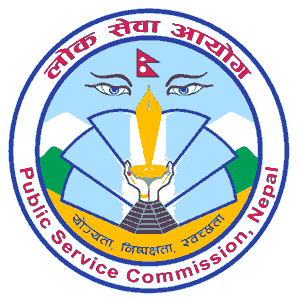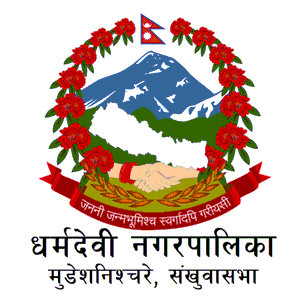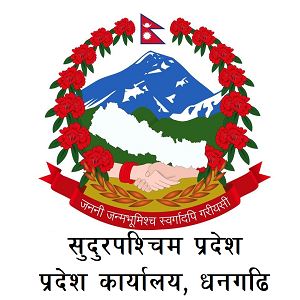Overview
Services of Nepal Medical Association (NMA)
Nepal Medical Association (NMA) provides services that support medical and dental doctors, improve patient care, and inform the wider public. Key areas include advocacy, professional learning, publications, welfare, ethics, disaster readiness, branch coordination, and international engagement.
Advocacy and Representation
NMA represents doctors in national forums and works with health authorities on policies that affect clinical practice and patient safety.
-
Engagement with ministries, regulators, and hospitals on workplace safety and fair procedures.
-
Position statements on medical ethics, service delivery, and medico-legal concerns.
-
Liaison during service disruptions, strikes, or crises to keep dialogue constructive.
-
Channels for members to submit issues through branches and committees.
Professional Learning and CME/CPD
NMA runs education activities that help doctors stay current with clinical advances and health systems topics.
-
Scientific sessions, updates, and symposia held by the central office and branches.
-
National conferences and theme-based forums across specialties.
-
Skills-based workshops in areas such as research methods, critical appraisal, and clinical communication.
-
Programs coordinated with universities, councils, and partner bodies for credit where applicable.
Publications and Research Support
NMA publishes the Journal of Nepal Medical Association (JNMA), a long-running, PubMed-indexed medical journal.
-
Monthly issues featuring original research, reviews, and case reports.
-
Author support through writing guidance, webinars, and editorial mentorship.
-
Reviewer development to strengthen peer review standards.
-
Encouragement of ethical research practices, transparency, and data integrity.
Member Welfare and Support
NMA offers structured support pathways for professional and personal challenges faced by members.
-
Doctor’s Welfare Committee for assistance, referrals, and documentation support when required.
-
Scholarship Committee notices for training grants or academic opportunities.
-
Membership Management services for enrolment, renewal, verification letters, and record updates.
-
Guidance on navigating institutional processes and grievance escalation via branches.
Ethics and Professional Standards
NMA upholds ethical medical practice and patient-first values.
-
Ethical Committee guidance on professional conduct and responsible care.
-
Awareness on informed consent, confidentiality, and conflict-of-interest norms.
-
Dialogue with stakeholders to strengthen trust between doctors and the public.
-
Support for humane, respectful care across all settings.
Disaster Preparedness and Emergency Support
NMA contributes to disaster and emergency health planning through its Disaster Management Committee.
-
Volunteer rosters and coordination with public agencies during emergencies.
-
Orientation on disaster triage, referral networks, and risk communication.
-
Post-event debriefs to improve readiness for future incidents.
Branch Network and Local Services
NMA’s branches provide local access to services and information.
-
Regular CMEs, clinical talks, and peer meetings suited to provincial needs.
-
Liaison with provincial health directorates and hospital administrations.
-
Quick channels for grievance reporting and follow-up.
-
Community programs and health days in coordination with local partners.
Umbrella Societies and Specialty Platforms
Many specialty societies work under the NMA umbrella, several housed at Siddhi Sadan, Exhibition Road, Kathmandu.
-
Joint scientific programs, guidelines discussions, and specialty forums.
-
Cross-specialty collaboration on national priorities such as emergency care, NCDs, and maternal–child health.
-
Access points for doctors seeking society membership or technical updates.
Junior Doctor and Early-Career Services
The Junior Doctor Committee (JDC) focuses on needs of doctors in the first decade after graduation.
-
Orientation sessions on contracts, duty hours, and workplace rights.
-
Peer support and networking across branches.
-
Career talks on postgraduate training tracks and research opportunities.
-
Advocacy on safe working conditions for interns and residents.
Public Health Outreach
NMA supports health education in the community and in the media.
-
Campaigns on hygiene, vaccination, mental health, and responsible health-seeking.
-
Expert inputs during outbreaks and seasonal risks.
-
Materials and talks for schools, colleges, and public events.
International Collaboration
NMA maintains links with regional and global associations to exchange knowledge and align with international norms.
-
Participation in global ethics and policy discussions.
-
Hosting and attending regional assemblies, scientific meets, and leadership forums.
-
Visiting faculty sessions and expert exchanges through partner networks.
Information, Notices, and Member Communication
NMA keeps members and the public informed through official notices and event calendars.
-
Timely updates on meetings, elections, and training opportunities.
-
Clear guidelines on membership processes and committee activities.
-
Helpdesk contact through central office and branches.
How Doctors and Students Can Access These Services
-
Join or renew NMA membership and keep contact details updated.
-
Subscribe to official notices and event calendars.
-
Attend branch CMEs and national conferences; volunteer for committees.
-
Submit manuscripts to JNMA and participate in reviewer training.
-
Reach out to the Doctor’s Welfare Committee or your branch for support.
-
Engage with specialty societies that match your field of interest.
Service Charter: What Stakeholders Can Expect
-
Patient-first ethics and transparent communication.
-
Respectful dialogue with authorities and institutions.
-
Regular education activities grounded in current evidence.
-
Practical support for member welfare and early-career growth.
-
Responsible community engagement and disaster readiness.
-
Collaboration with national and international partners for the common good.






